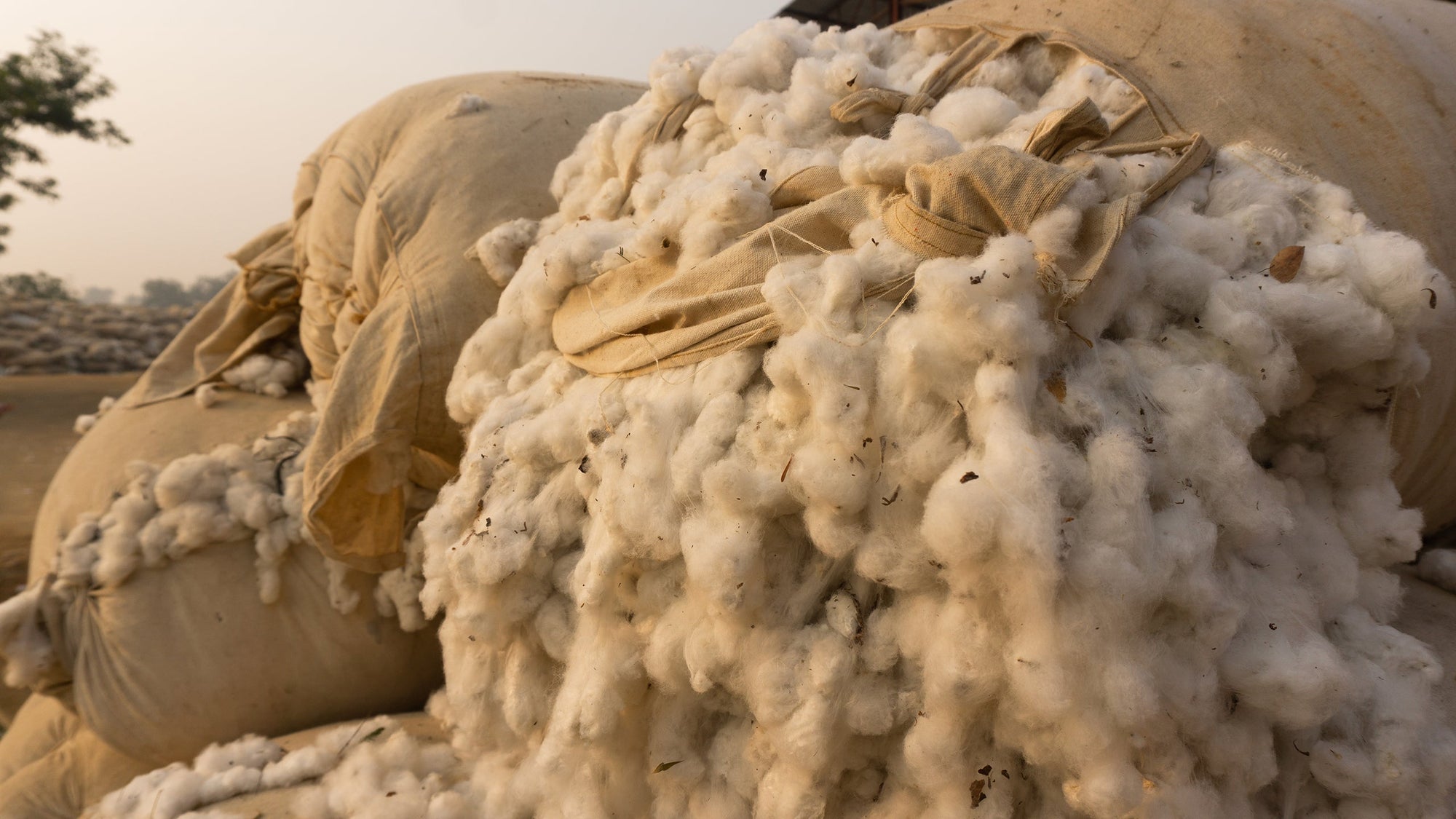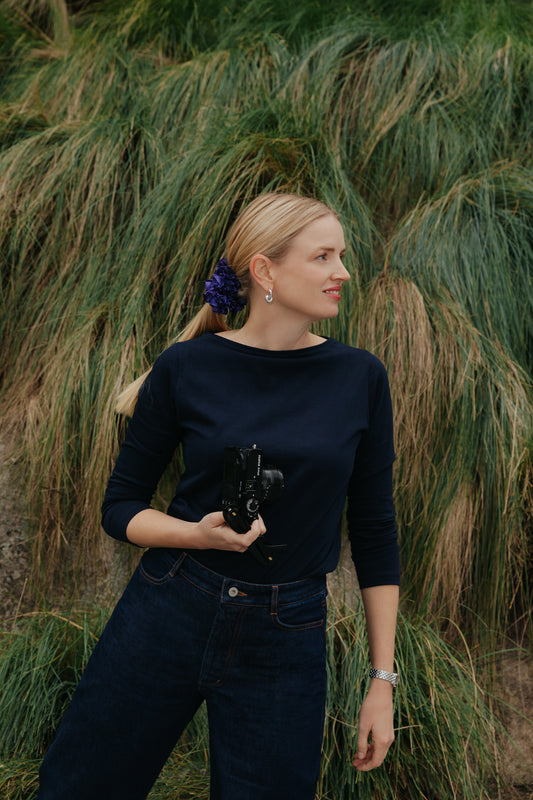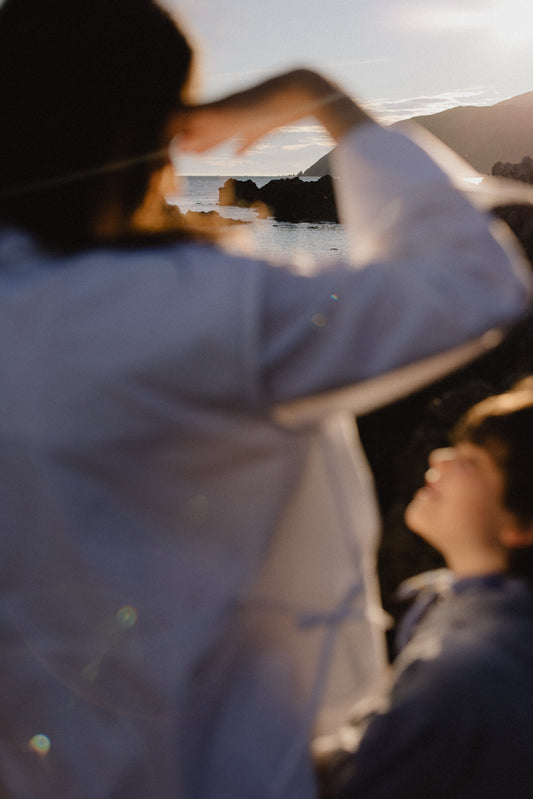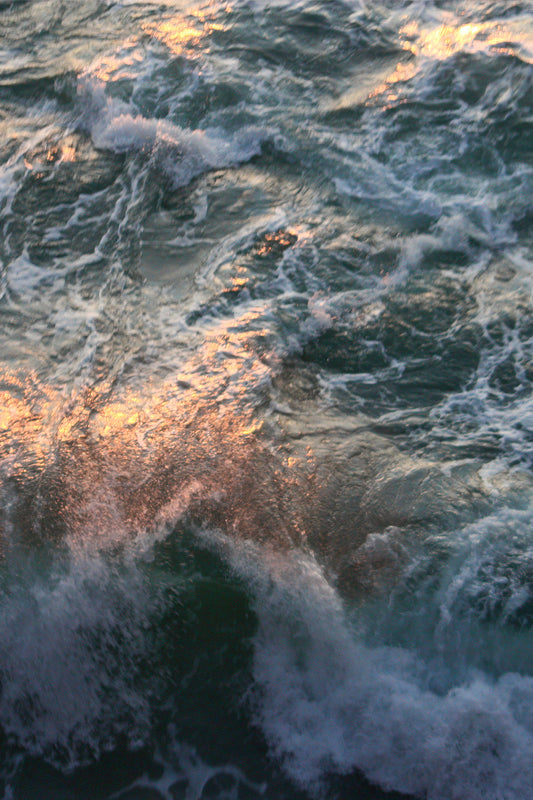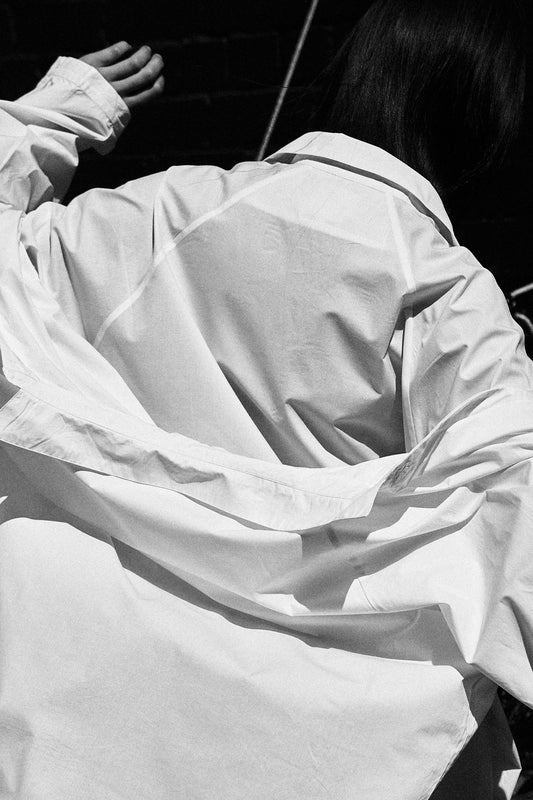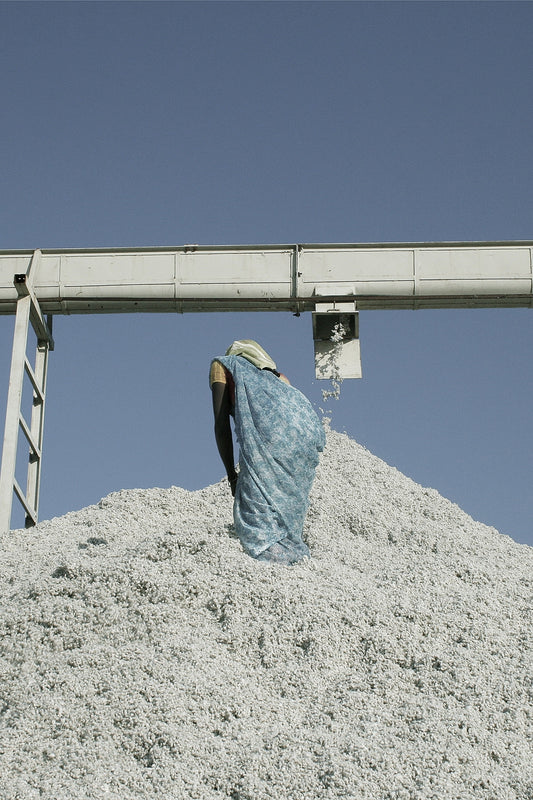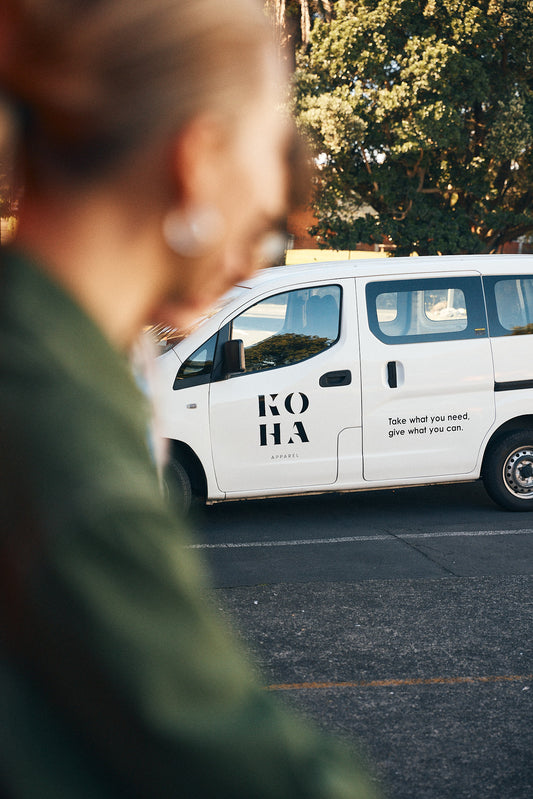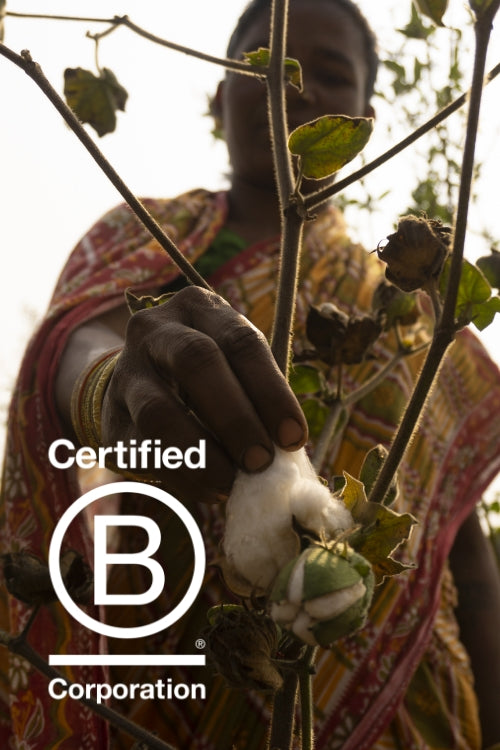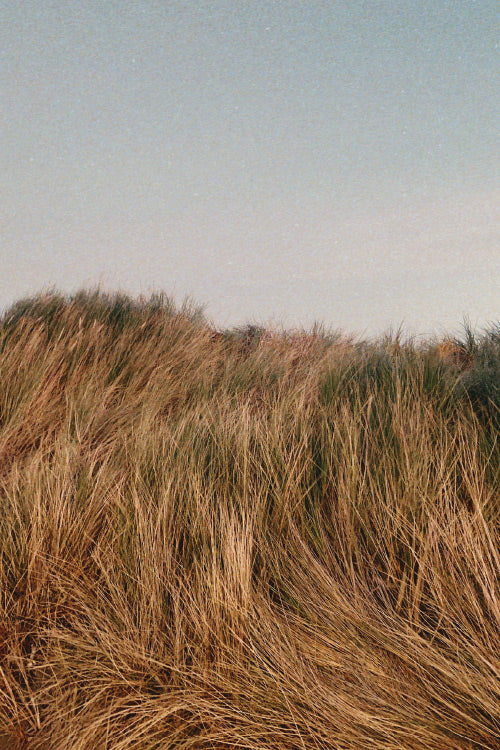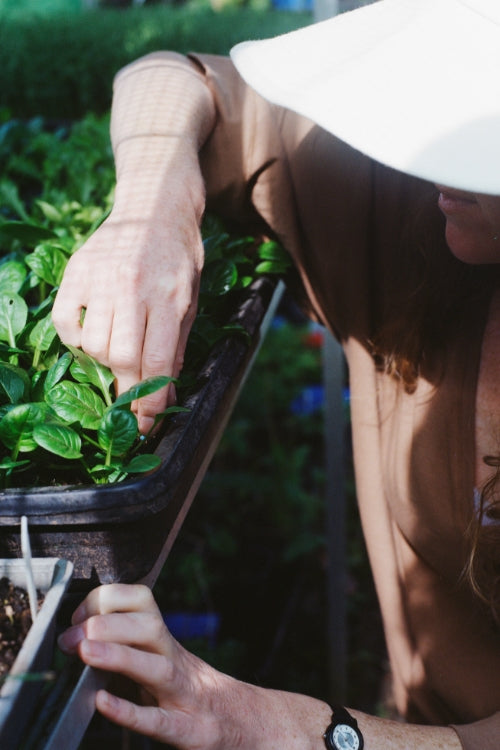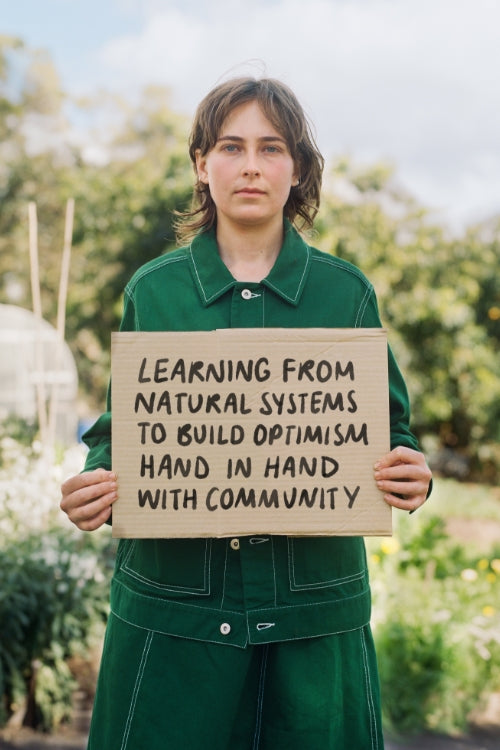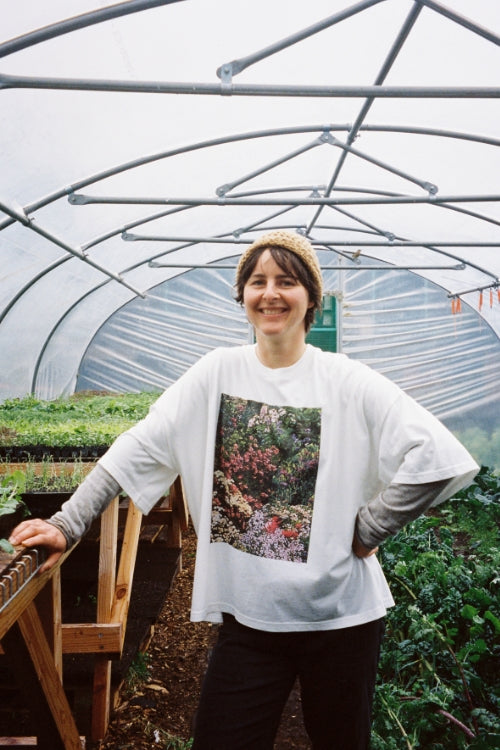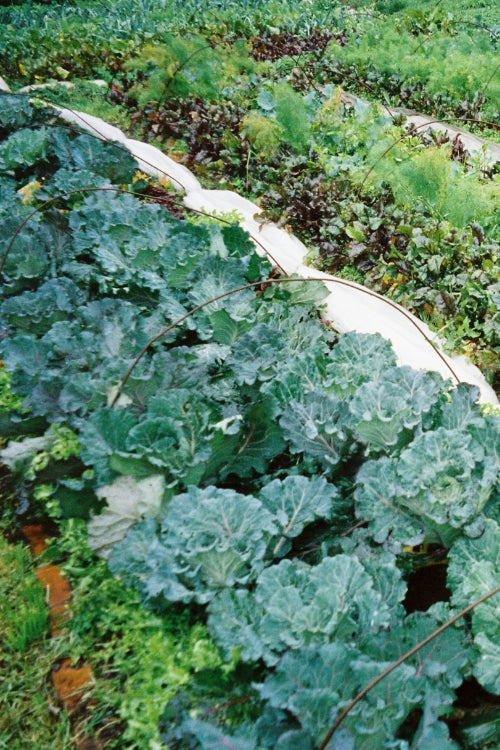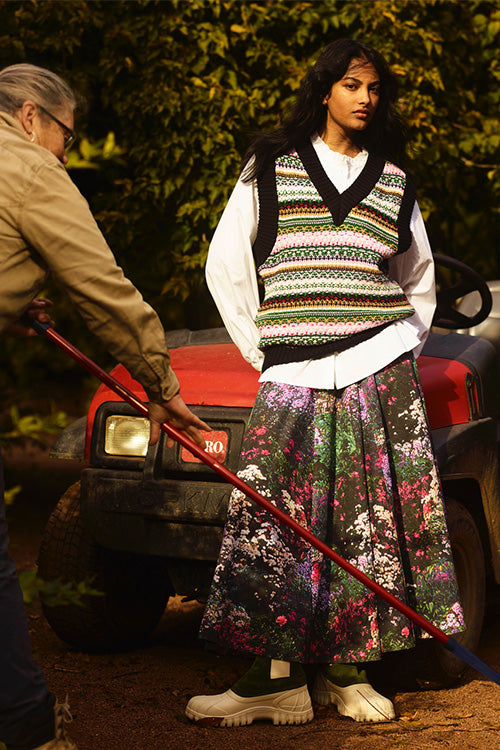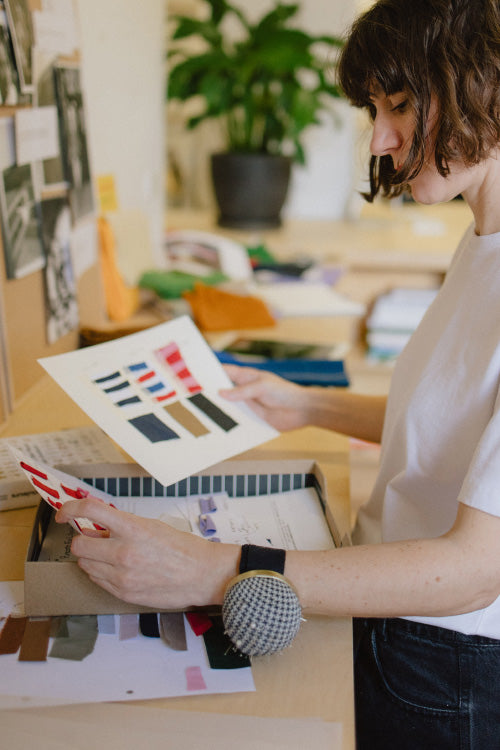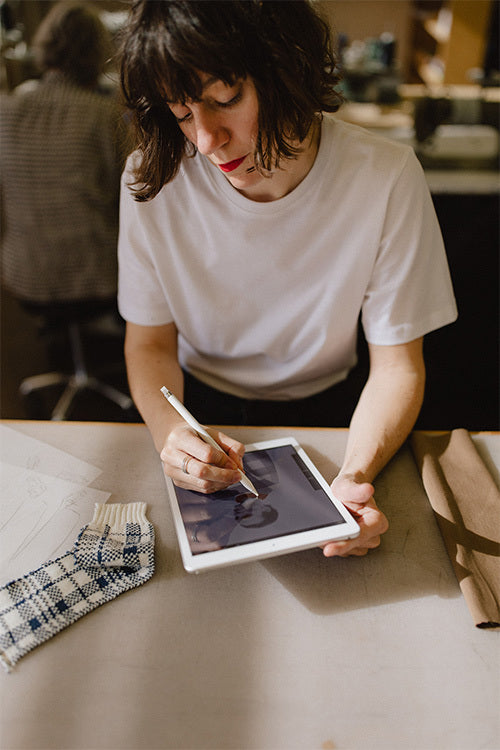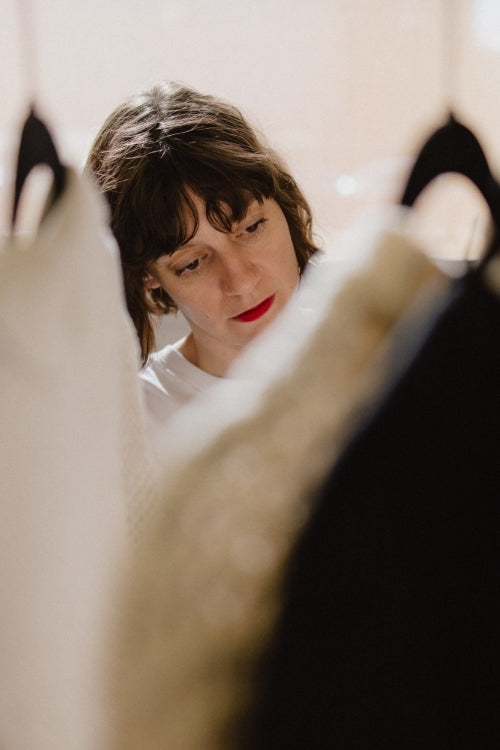Kowtow & Our Relationship With Clothes
Fashion Revolution Week asks us to consider what we wear, who makes our clothes and why transparency and accountability are paramount in the fashion industry. This year we wanted to spotlight a member of the Kowtow community who we think is revolutionary in the way they document and see fashion.
Founder Story with Gosia Piątek
Gosia Piątek founded Kowtow in 2006 with a vision where a necessary product, such as clothing, originated from and how it could return back into the earth, without causing harm to people or the environment. Here she tells us the journey before she started her mission and what her vision for the future of Kowtow is.
Plastic Free Clothing
At Kowtow we’ve been working for 17 years to completely eliminate all plastic derived materials in our clothing. A long and winding journey that has challenged industry conventions and led to finding natural alternatives so that now, we can claim completely plastic-free Fairtrade organic cotton clothing.
Why It Matters To Use a Mono-Fibre
The journey to using a mono-fibre was the result of years of experimentation and learning, to find the best circular potential. This piece explains why Fairtrade organic cotton forms the foundation of every garment in every collection we create.
Kowtow Impact Report
With the global fashion industry having a significant impact on both people and the natural world, we believe transparency is key to the solution. Our first Impact Report shares with you a deeper look at how we work and our circular clothing solution.
Creating a culture of care
We proudly partner with Koha Apparel, a registered charity that seeks to uplift our most marginalised, providing clean, quality clothing to those in need at no cost. Based in Tāmaki Makaurau, we spoke with founder Charli Cox about this work and how the organisation is addressing textile waste through their community clothing exchange.
Becoming a B Corp
Since our inception in 2006, Kowtow’s purpose has been to put people and planet first. We see positive impact amplified when we are part of something bigger than ourselves. We work with a Fairtrade certified supply chain and like-minded partners to create discernible change within the fashion industry.
Kowtow Sustainability Strategy
Founded in 2006, Kowtow is committed to creating positive change. We believe in preserving the planet and protecting people in everything we do. Our decision making is centred around circular design, ethical manufacturing and sustainable fibres. This strategy outlines our roadmap to creating incremental change across each of these founding values. Our strategy is structured across the pillars of ‘People’, ‘Planet’ and ‘Prosperity’.
Kelmarna: Creating A Food System Kinder To The Planet
Nestled in the heart of Tāmaki Makarau, Kelmarna is an urban farm whose purpose is to rebuild connections between people, food production and the land.
Sowing The Seeds For A Brighter Future
The benefits of green spaces and access to nature are long documented. As urban populations grow and the sprawl of concrete continues to encroach on the natural world, community gardens and urban farms take on a new importance. With a shared purpose to do better for the planet and our communities, Kowtow seeks to bring attention to and celebrate the Avant Gardeners - the local changemakers behind these vital green spaces.
Urban Farming For a Better Future
At Kowtow, we are inspired by Kaicycle’s small changes that make a big impact. Whether it’s regenerative and organic farming, circularity or composting, we have a shared purpose to do better for the planet. Through our long standing relationship with Kaicycle - and years of using their composting service - we have worked together to divert our waste from landfill to compost.
Community & Urban Garden Directory
The Garden Book Tee is a celebration of Avant Gardeners - the local changemakers behind our community gardens and urban farms. Nestled within our cities, these spaces become a source of education and nourishment, green patches for community amongst the urban landscape.
AVANT GARDENER
Inspired by nature in full bloom, this collection celebrates the Avant Gardeners. We believe that collectively, small actions have a big impact. Positive change can begin at home, and in our gardens. By nurturing our natural environment we can bring life to the spaces we inhabit, and encourage nature to thrive - this becomes an act of protest in a world that needs protecting.
The Studio Series: 03. Design, Colour & Print
The colours are the beginning of a collection. Every colour is made from scratch - determined by Kowtow’s design team who blend and alter every colour to create the perfect shade. Kowtow’s Creative Director Marilou draws inspiration from everyday objects. The colours of a tea towel or the cover of a book can catch her eye and make their way into the collection.
The Studio Series: 02. Weaves & Textiles
This collection’s creative direction takes inspiration from the women of Bauhaus. The German art school that produced some of its generations finest artists and specialised in both fine arts and crafts. Bringing this time-honoured practice into the modern day, our collection - Material Matters - is selected and designed by hand and guided by touch: the weight, weave, and texture of cotton into myriad fabrics.
The Studio Series: 01. Cotton
In The Studio Series, our Creative Director Marilou shares with us her process in creating a collection entirely from cotton, plus the creative direction of every choice: from conception to design. “As designers we are responsible for what we put out into the world” which is why Material Matters leaves as light a footprint as possible.
